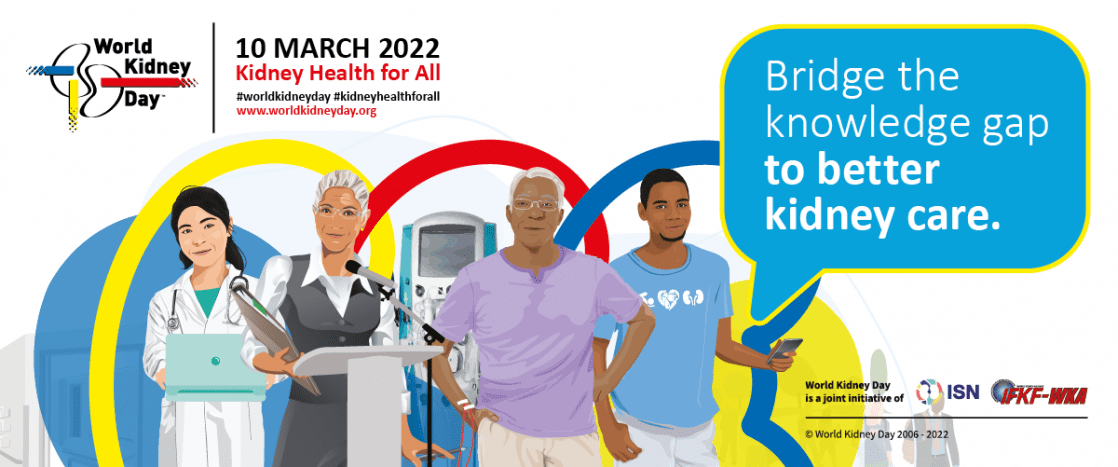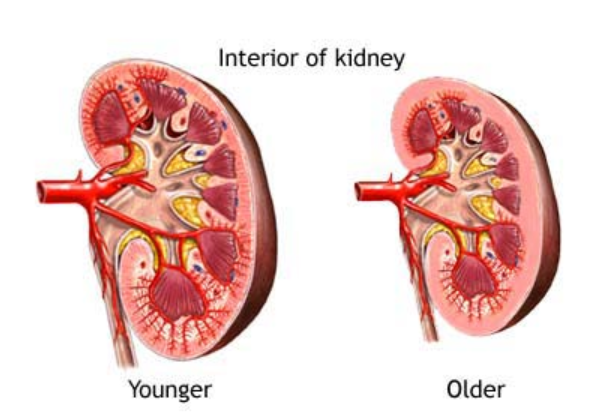
You and Your Kidney Health
Kidneys are so important that nature decided that humans need TWO of them. Yes, kidney health is important but they don’t get the attention they deserve. March 10th is Kidney Health Day – this year’s theme is Kidney Health for All!
What’s the Big Deal About Kidneys?
Kidneys are the ultimate filtration and purification system. Therefore, its main responsibility is to clean and keep clean your internal system, but it’s not the only thing it does. These miraculous organs:
- Make urine
- Remove wastes and extra fluid from your blood
- Control your body’s chemical balance
- Helps control your blood pressure
- Help keep your bones healthy
- Help you make red blood cells
Because the main job of your kidneys is to remove toxins and excess water from your blood, this keeps your blood pressure under control. They also control mineral levels in your blood stream such as sodium and potassium and help control overall blood acidity. By controlling salt (sodium) and water levels in your body, it can moderate your blood pressure.
A cool fact about kidneys is that adult kidneys constantly grow! Research shows that kidneys repair and regenerate themselves throughout life.
So, we’ve got an organ that we have two of, and it has the ability to grow and heal itself over a lifetime, and is responsible for cleaning out and maintaining our body systems. This definitely warrants a heavy importance in its care for our health.
Research shows that kidneys repair and regenerate themselves throughout life.
stanford university
What Happens to Our Kidneys As We Age?
As we age, changes start to occur in our kidneys. In a healthy person, these changes occur very slowly.
- Amount of kidney tissue decreases
- Kidney function diminishes
- Number of filtering units decreases. These units are responsible for filtering waste material from the blood
- Blood vessels supplying the kidneys can become hardened, causing the kidneys to filter blood more slowly
The kidney starts to atrophy and is not as productive with age.

Illness, medicines, and other conditions can degrade kidney function quicker and more seriously. As we age, the risks of kidney problems rise, especially chronic kidney disease.
Although not the only causes, two main conditions in common with chronic kidney disease is type-2 diabetes and high blood pressure. With the rise of obesity, the rate of diabetes and hypertension has risen among middle-aged adults as well, pretty much assuring a pervasiveness of chronic kidney disease in the senior population.
As well, ⅔ of all cases of end-stage renal disease are directly caused by diabetes or hypertensive renal disease, a condition of progressive thickening of the nephroscleros in the kidneys.
At the end-stage of renal disease, your kidneys can no longer remove wastes and the excess fluids from your body. A dialysis or kidney transplant are your next options.
What To do?
- Be active – this will help you maintain an ideal body weight, and reduce your blood pressure
- Eat healthy – this helps with the above points, plus the added bonus of preventing diabetes and heart disease. Consider eating a more plant-based diet, as plant-based proteins may put less strain on weak kidneys. Reduce your salt intake.
- Check in with your doctor regularly! Check blood sugar and blood pressure.
- Drink water – check with your doctor on the appropriate fluid intake levels if you have specific health conditions.
- Stop smoking. Consequently, smoking slows the blood flow to the kidneys, therefore decreases function. Risk of kidney cancer rises by about 50% with smoking.
- Don’t pop pills like candy. Pain-killers and anti-inflammatory drugs are harmful to kidneys if taken regularly.
This year, educate yourself on the importance of your kidneys and treat them with the love that they deserve. Check out the Kidney Community Kitchen from the Kidney Foundation for some great kidney-friendly recipes and meal planning ideas.
Do you think you know about kidneys now? Check out this quiz and find out!
Love your kidneys and your kidneys will love you back 💓

